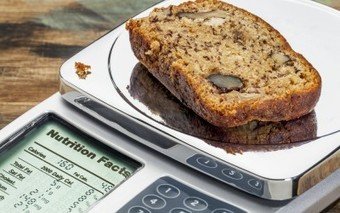In our previous posts, we looked at the surprisingly technical process of building muscle by first calculating optimal daily caloric intake levels, and determining the necessary daily amount of protein and fat necessary to reach your target goal. In this article, we’ll tell you how to meet your daily carbohydrate intake level.
As a reminder, we used a baseline of a person who needed to consume 2500 calories per day, and we had calculated that 100 grams daily of protein (ie: 400 calories) was optimal, and anywhere between 83 to 111 grams of fat per day (ie. 750 to 1000 calories) was ideal. The only macronutrient left to assess is carbohydrates.
Quite logically, carbohydrates take up whatever is left in our daily total caloric intake. So, 2500 minus 400 minus 750 (to 1000) is the number of calories reserved for carbs. Divide this number by 4 to get your total in grams.
Range 1 (minimum fat intake level): 2500-400 (protein) – 750 (fat) = 1350 calories remaining for carbs = 1350/4 = 337 grams of carbs.
Range 2 (maximum fat intake level): 2500-400 (protein) – 1000 (fat) = 1100 calories remaining for carbs=1100/4 = 275 grams of carbs.
Putting everything that we’ve learned together, here are the two ideal ranges for muscle building for someone who needs to eat 2500 calories per day:
Range 1 (minimum fat intake level)
100 grams of protein
83 grams of fat
337 grams of carbs
Range 2 (maximum fat intake level)
100 grams of protein
111 grams of fat
275 grams of carbs
To fulfill our earlier promise to include vegetarians in this discussion about muscle building, check out the following post to learn about the myriad types of plant-based food lovers and what their best protein sources are.



